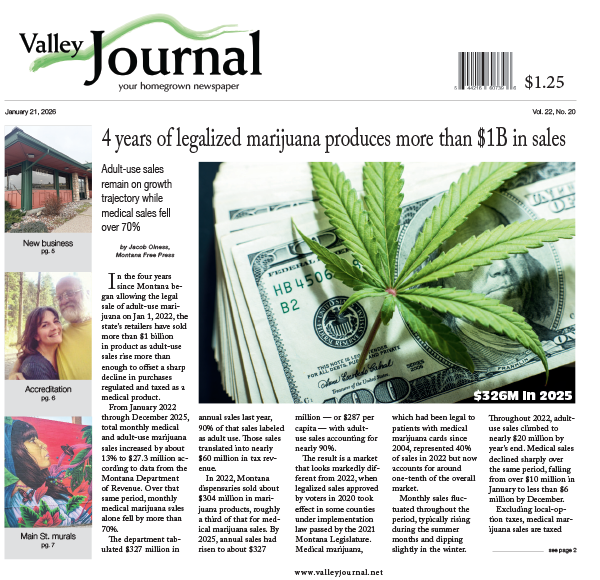Peace Voice
Big, beautiful American poor
Hey savvy news reader! Thanks for choosing local.
You are now reading
1 of 3 free articles.
I grew up poor, that is, American poor. I fantasized about food at night–mashed potatoes, buttery dinner rolls, raspberry cheesecake. I would wake up and imagine a breakfast–strawberry waffles with whipped cream, cold orange juice–then, talk myself toward accepting what I knew was there–toast with peanut butter and usually, milk. My dad did not tolerate ungratefulness.
I couldn’t pay school fees like the dreaded $10 workbook fee and was harangued by the dogged collectors as I repeated that I forgot it. I couldn’t rent an instrument, so I didn’t play one, but singing lit my heart on fire. I couldn’t join sports, couldn’t buy uniforms or pay for trips. My gym teacher in seventh grade said I was great at running and hurdles, and she encouraged me to join the track team. I joined, but immediately sprained my big toe and quit. I think my teacher, the coach, knew I could have overcome this minor injury, but couldn’t overcome going without the right shoes, walking two miles home from practices, having no money or rides or, in fact, confidence to run.
I got the free lunch at school. We had to walk up to the stage in the cafeteria to find our ticket–a white card with our name on it–before getting in line. Not only were we conspicuous, frantically searching for the ticket in front of everyone, but we were also the last to get the food our bagged-lunch friends couldn’t recognize. “What is that? Are you going to eat that?!” When we had to bring a lunch for field days, my dad would pack something in a bread bag like an only-peanut-butter sandwich and a whole carrot with the white root hairs obscenely pressed against the clear plastic. Variations on this lunch included a boiled egg crayoned with “B” on the shell or a plain baked potato.
Packaged snacks weren’t covered by food stamps or WIC–milk stuffs for Women Infants and Children. We had whole milk and bricks of government cheese food. We had unmarked cans and other food bank finds including, once, a sugary cereal we were excited about until we tasted that it had been contaminated by the powdered laundry soap it had sat with in the donation box. We were turned away in shops because what we wanted couldn’t be bought with this other-colored money or because they said they didn’t have change for food stamps. Thankfully, my mom mostly knew where she could stock up and on what.
We rarely went to the doctor. We all have scars that show no one stitched them or set the bones straight–ok, only one broken finger set with a stick and tape. When my sister was really sick, the irritated doctor didn’t want to take Medicaid. He only gave her Claritin. It turned out to be mono and she was in bed for a week, then she got pneumonia. She recovered. Our remedies were to pray, drink water, put a cloth on your head or where you hurt, hot or cold, depending.
My mother-in-law says I’m an exception. She says people on welfare are lazy, only busy pumping out babies and watching TV. She thinks it’s easy to have no job, let the checks roll in, buy steaks and chocolate with your government winnings. She hasn’t sat in the welfare office for three hours only to be yelled at, looked down upon, and rejected for the second time because you couldn’t get the papers right. She hasn’t had a disability or loved a person who is blind from a genetic disease like my dad was. She hasn’t had a nervous breakdown, spent months in mental wards after suicide attempts like my mom has. She doesn’t know anyone who grew up on or is on welfare, except for me.
In some ways, I am an exception. I grew up with both my married parents. My great grandfathers were a doctor and a lawyer. The lawyer left us each $4,000 for college. There wasn’t any question–we had to go to college. My dad went blind slowly. He memorized children’s books so he could “read” to us without seeing the pages. Although she didn’t finish college, my mom loves poetry and had a full mahogany bookcase. She planted daffodils in the yard; we lived in our own house. My parents got a settlement after being in a dormitory fire. My mom’s dad got a lawyer who won them enough to buy a house on an acre of grassy land with crab apple trees that bloomed pink in spring.
I am not an exception in that I am white. More than 62 percent of welfare recipients are white and about 46 percent are single mothers. Despite the term “white trash” my mother-in-law imagines this waste of money is for People of Color.
I am not an exception in that my parents are disabled. The majority of welfare recipients are children, the elderly, and people with disabilities.
I am not an exception in that I am hardworking and work to improve my life and the lives of others.
I am not an exception in that very young, I knew some strangers, teachers, and people around me thought I was a useless weight, a tax burden, a bad decision, a mistake. I am not an exception in carrying this shame, trying to shape it, alchemize it into empathy, motivation, a commitment to justice.
Raised in the Rust Belt and educated in the Bluegrass and New England, Arlyce Menzies has spent her adult life teaching writing to people from all over the world. She received her MFA in poetry from Boston University and teaches at Nazarbayev University in the windy steppe capital of Kazakhstan, Astana.
















